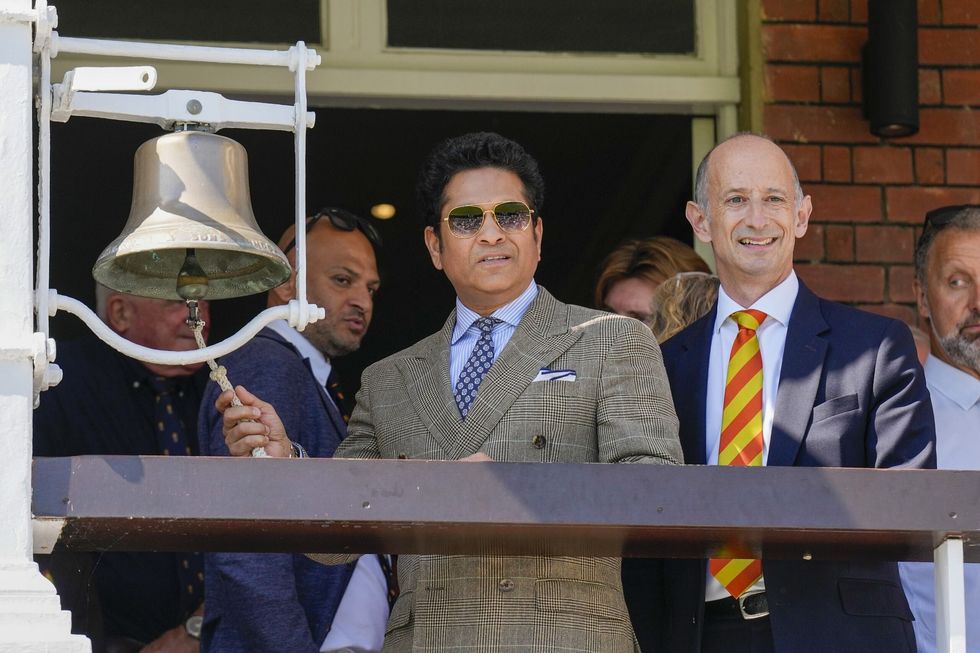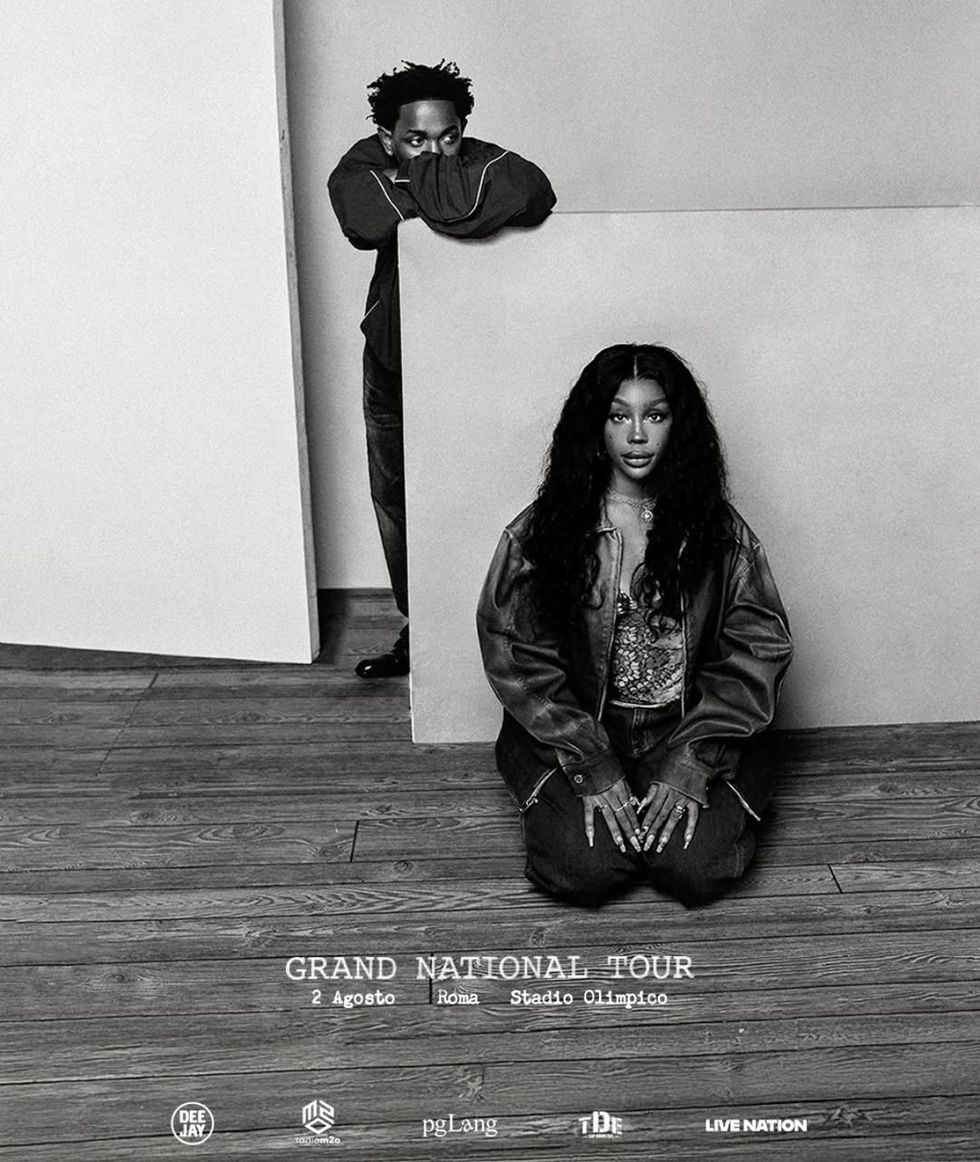ACCLAIMED theatre director Milli Bhatia said the theme of how “empowering” representation is for marginalised groups is what drew her to debutant writer Mohamed-Zain Dada’s play Blue Mist.
Set in the shisha lounges of northwest London, Blue Mist follows three south Asian Muslim men navigating a system that “isn’t built for them”.
When one of them, an aspiring journalist, wins a competition to produce his own documentary, he sets out to create something that gives a voice to his community and challenges the usual stereotypes that fill the airwaves.
“It was beautiful and empowering to read this piece of work,” Bhatia told Eastern Eye. “My process with the actors is rooted in understanding and seeing how represented and empowered they feel by what Zain has written, and that is a new experience in so many ways.
“It’s a counter-narrative to an overwhelming narrative that surrounds this particular group - their joy, their ability to be flawed and to be nuanced is also important to celebrate and embrace.”
Dada, 30, said the play tackles challenges he faced as a south Asian Muslim growing up in Barnet, north London. He borrowed elements from himself, his friends and family for the character development of the three male leads.

The initial concept of the play came from a scene – based on the Muslim dating scene – he wrote while applying for a play writing course at the Royal Court Theatre, and which was drawn from talking to friends while sat in a shisha lounge.
“Shisha culture, in a sense, is similar to a pub, a social space where young Asian people, young black people, young Arabs can get together and be themselves – a space they call home, where they feel safe enough to have conversations they wouldn’t have elsewhere,” Dada told Eastern Eye.
“There’s an element of definitely drawing on my own life experiences. But what’s been amazing is developing these characters and giving them their own three-dimensional identities outside of drawing on my friends or family or anecdotes.
“The three characters are actually quite distinct from me and my friends, even if that was the original inspiration.”
He added: “The subtext of the play is based around the last 20 years and growing up as a young, south Asian Muslim; that definitely influences and informs the play when it comes to thinking about how people who look like me are portrayed and how they’re sort of, in some ways, vilified as well.”
Dada said he felt “tense” writing about his own community.
The mainstream media’s commentary on issues relating to Islam – such as fundamentalism, young Muslim men, how women are treated – has often been criticised by some sections of the Muslim community.
Writing about these issues as someone from the Muslim community brought an added sense of pressure for Dada.
“It’s an interesting balance. You want to write what you want and not feeling like just because you belong to a particular community that is under-represented, that you have to be the voice of that community, but I don’t believe you should. You should write from your own individual voice,” said Dada.
“But there is an inevitable thing of how what you write - if you’re from a minority community - feeds into a broader narrative. That tension plays out in a lot of ways for a lot of different writers, particularly people of colour.”
In the play, the character Jihad says, “a good journalist doesn’t always play friendly. In fact, they mostly don’t”.
His no-holds-barred style of documentary making leads him down a path where he attempts to remove the veil behind the shisha lounges being targeted by local politicians. Though he attempts to give a balanced account of shisha culture and, by extension, south Asian Muslim culture, Jihad’s film, The Shisha Boys, gets him into trouble with his own community because of how the media interprets it.
In the play, the media jumps on the perceived negativity of Jihad’s film.
Dada said the play highlights how the media can pick and choose information and take things out of context to meet their own agenda.
“At the outset, if your intention is to vilify, to make a political argument, and actually not be objective and portray a community a certain way, then things can be taken out of context,” he said.
“That’s what we’re trying to do and show with this play. Without the full picture of who a person is, judgements are made and cultural wars can happen. This is a kind of a response to that.”
Dada said he was determined not to ignore or give a one-sided view of themes such as faith, multiculturalism and identity that would appease certain audiences.
“It was a very instinctive thing; I definitely wasn’t going to self-censor in any way in terms of being open about faith and its representation. Each character’s relationship with faith is complex and different,” he said.
“Even the people they have conversations about (the young Muslim men vulnerable to radicalisation) have contradictions. They might reference Allah, but also have other things they’re dealing with or doing (which may contradict Islam). It was important to represent faith in an open way.”
He added: “A poet and playwright who Milli and I really admire is Suhaiymah Manzoor Khan, who writes a lot about how often marginalised communities are presented in binaries, they are either good or the bad. The approach we took is that people should be afforded the ability to be flawed, broken, confused or to be certain - a multiplicity to how people are in real life that often isn’t there in the media.”
Bhatia is the associate director at The Royal Court Theatre where Blue Mist will be performed. Her production last year, Chasing Hares, received widespread critical and audience approval.
Her Olivier award nominated Seven Methods of Killing Kylie Jenner will tour the US.
Prior to that, she was eager to work with Dada and a talented cast made up of Salman Akhtar, fresh from his scene-stealing turn as prison officer Sajid in season 4 of the hit comedy Man Like Mobeen and respected theatre and film actors Omar Bynon (Julias Caesar, King Lear and The Importance of Being Earnest) and Arian Nik (Allelujah, The Bower, Dating Amber).
“All three of them absolutely understood the experiences in the play; it kind of poured out of them. Once we met them, it was very easy for us to imagine them in the play. They carry the sentiment and spirit of Zain into the process that we’re embarking upon,” said Bhatia.
She added: “They are incredibly brave because this is not an easy play for actors - in that it’s both theatrical and it deals with big themes. It’s got a really beautiful, brave political anchor and they have absolutely thrown themselves at it every day with real vigour and you couldn’t ask for more really. They are absolutely wonderful.”

With two of the leads from a British Asian background to go with a British Asian writer-director duo, Blue Mist is part of a growing number of plays giving people of south Asian heritage a chance to tell their own stories.
Bhatia and Dada mentioned writer Rabia Hussain, whose production Word-Play got great reviews at the Royal Court Theatre, as one of many talented British Asian artists making their mark in theatre.
“We spoke earlier about the pressure to represent a community. There are so many nuances and differences within our communities. We must celebrate our stories because the more we hear of them the more we will understand those nuances and that we are absolutely not all the same,” said Bhatia.
“There are so many talented artists out there and it’s really important that we occupy more space and stages.”








 (Photo credit: PTI)
(Photo credit: PTI)










 Kendrick Lamar and SZA commands the stage at Villa Park during his explosive opening setInstagram/
Kendrick Lamar and SZA commands the stage at Villa Park during his explosive opening setInstagram/
